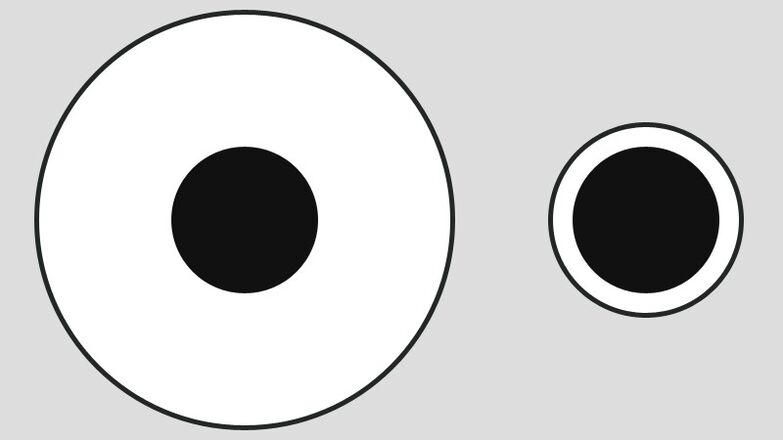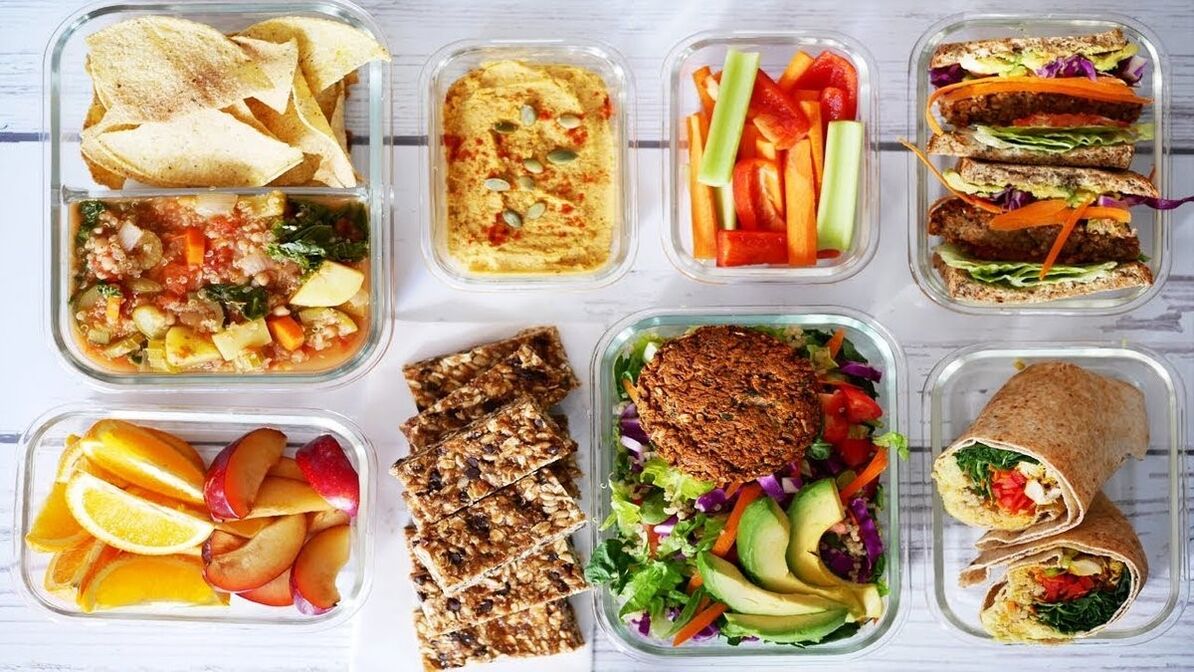
Proper nutrition for weight loss does not imply strict restrictions, fasting and refusal to eat favorite foods. First of all, it is about taking care of yourself, choosing food and doing something that feels great and improves your quality of life.
The all or nothing principle does not work in this case. It is not necessary to change everything in one day and at once - it usually causes an accident and, as a result, overeating. It is better to make small changes step by step. This will help you achieve more results in the long run. As your small changes become a habit, add healthier rules.
The key to remember is that striving for health is a lifelong journey. You need to enjoy, not stress.
Why do you eat healthy food?
In addition to helping you maintain a healthy weight, eating a healthy diet that includes fruits, vegetables, grains, milk and protein also has other important benefits.
Poor nutrition is the most common cause of immunodeficiency in the world. To fix many chronic diseases scientists have linked to improper diet. For example, in one study 38, 5 thousand men and 67 thousand women participated. Observations from 8-12 years have shown that junk food contributes to the deterioration of biomarkers and can also lead to heart disease, hypertension (hypertension), type 2 diabetes, osteoporosis and some types of cancer.
Evidence has shown that 30–35% of cancer deaths are related to diet, 25–30% to tobacco, 15–20% to infections, and the remaining percentage to other factors such as radiation, stress, and physical inadequacy. Activities, environmental pollution, etc. Sh.
Poor nutrition affects not only physical but also mental health. According to the Mental Health Foundation, two-thirds of people who eat fresh fruits and vegetables on a daily basis do not have mental health problems.
Thus, the link between good nutrition and healthy weight, reduced risk of chronic disease, and overall health is very important not to neglect it.
How long does it take to develop eating habits?
Everyone is looking for a quick fix for weight loss these days and changing the habits that promote it and last it long will take time. This has been confirmed by recent studies.
It has long been thought that 21-28 days is enough for a stable habit to appear. This statement primarily refers to the work of a physician named Maxwell Maltz. In the 1950s he was a plastic surgeon and noticed that his patients needed at least 21 days after surgery to look comfortable in the mirror. In addition, he noted that people who had their legs or arms amputated needed the same amount of time to lose their sensory limbs.
As a result, he developed the idea in his book Psychosybernetics, published in 1960. Since then, the idea has been adopted by many physicians, public figures, and coaches.
What are the new studies talking about?
Philip Lally is a researcher in Health Psychology at University College London. In a paper published in the European Journal of Social Psychology, Lali and her analytical team aimed to figure out how long it takes to develop a habit.
96 people participated in the study. Each one chose a new habit for 12 weeks and declared every day whether or not they were following it.
Some people have adopted simple rules such as "Drink a bottle of water at dinner". Others chose more difficult tasks, such as running 15 minutes before lunch. Twelve weeks later, the researchers analyzed the data to determine how long it took each person to start performing the new behavior automatically.
This, on average, took more than 2 months, or rather 66 days. But the timing of developing a new habit can vary considerably depending on behavior, personality, and circumstances. In total, the study took people from 18 to 254 days.
How to start eating right and what habits can help you in the process of losing weight?
1. Be in a calorie deficit
The main idea is as old as the universe -You need to burn more calories than you consume. . .
The negative balance of calories forces the body to use the accumulated reserves of energy needed by the body. This energy mainly comes from the body stores carbohydrates and fats.
The daily calorie deficit during the weight loss phase should be between 300 and 500 kcal.
In addition, it is important to monitor BJU (protein, fat and carbohydrate) indicators.
2. Reduce the amount of fat in your diet
According to WHO (World Health Organization), preference will be given to reduced consumption of unsaturated fats (found in fish, avocados, nuts, etc. ) and saturated fats (fatty meats, butter, palm, coconut oil, etc. ), as well as industrial trans fats. , Which are found in baked, smoked, fried foods, convenience foods, pies, chips, crackers, and more. Sh.
Fats should be no more than 30% of the total food consumed during the weight loss diet, of which less than 10% should be saturated and not more than 1% of trans fats.
It is not necessary to completely give up fat in the diet. They are essential for providing the body with polyunsaturated fatty acids, namely linoleic and alpha-linoleic acids. They are not produced by the body and are mainly found in vegetable oils and fish.
3. Get enough protein
Protein is the most important building block of the body and should cover about 40% of the total energy needs.
When you are trying to lose weight, a protein-rich diet can make you feel weak for a long time due to the effects of the hunger hormone ghrelin. Protein also counteracts muscle loss during dieting. The more muscle mass, the more energy is consumed and the higher the calorie requirement.
Animal proteins have a higher biological value than plant proteins. However, they also contain extra fat and cholesterol, so consumption should be moderate.
According to research, a high-protein breakfast can reduce food and calorie intake throughout the day.
4. Avoid simple carbohydrates
In total, carbohydrates in the diet should be about 30%. They are usually divided into simple and complex. The latter takes longer to process and produces less insulin, which helps you maintain fullness and avoid overeating.
Simple carbohydrate foods include sugars, white flour, jams, sodas, juices, and more. Sh. For simple carbohydrates it is best to choose the first half of the day when blood sugar levels are low after sleep, glycogen stores are depleted and the body's energy needs to be restored.
For carbohydrate-rich foods, cereals are ideal because in addition to being high in minerals and fiber, they also saturate the body and promote digestion.
As a guide, you can useHarvard Healthy Eating Pyramid. . .
5. If you can not, but really want to
As you know, "forbidden fruit is sweet. "The more you forbid yourself to do something, the more you want it. The feeling of guilt that overcomes if you succumb to temptation forces some people to give up and give up what they started.
Therefore, the first step may be not to completely discard the harmful product, but to reduce the portion size and reduce the frequency of its consumption. Over time, you will begin to have fewer cravings for these foods.
6. Avoid drinks that are high in fat
Avoid soda and fruit juices.According to research, these drinks are low in nutrients, and excessive consumption led Americans to gain 20% of their weight from 1977 to 2007.
0. 5 liters of cola contains 240 calories and 65 grams of sugar. It has been proven that people who drink mostly water get an average of 200 calories a day more than those who drink other beverages.
Drink water before eating. One study showed that drinking water half an hour before a meal can reduce appetite and increase weight loss by 44% in just 3 months.
If you are not ready to give up unhealthy drinks immediately, use a simple trick that can fool your brain.
Look at the picture below. Which of the lines is bigger: horizontal or vertical?

In fact, both lines are the same length, but our brain has to re-evaluate the vertical lines. In other words, to transfer this knowledge to the subject under discussion, taller glasses and mugs are bigger and more capacious for us than round and wide.
This way, you can drink about 20% less of a long and thin glass than a small and wide glass without dissatisfaction.
7. Eliminate alcohol
It is recommended to abstain from alcohol when switching to a proper diet. Why is this necessary?
- Alcohol causes an increase in appetite by acting on neurons and also increases the likelihood of breakdown, unhealthy food choices and overeating.
- It adversely affects digestion, alters the secretion of stomach acid and its movement, leading to metabolic disorders.
- Alcohol delays water in the body, which is why many people in the morning have bloating and extra pounds.
- Alcohol intake can impair the body's ability to recover from exercise, thereby reducing the ability to burn excess calories as a result of exercise.
- Alcohol consumption leads to shorter and lower quality sleep, which significantly affects hunger and forces people to switch from carbohydrates to eating fat. According to research, every 30 minutes sleep deficit is 83 extra calories throughout the day.
But it is clear that drinks with moderate alcohol in moderate doses do not cause significant harm to the body. 100 ml of dry red wine contains 80 kcal, 100 ml of beer contains 45 kcal. For comparison, in vodka - 230 kcal per 100 g. Therefore, one glass of dry wine or one glass of beer can be drunk once a week, without harm to weight loss.
8. Serve 5 servings of fruits and vegetables
Fruits and vegetables provide the body with fiber, minerals, vitamins and phytochemicals. They serve a number of important functions in the body and are essential for healthy metabolic processes.
It is recommended to take at least two servings of fruit and vegetables three servings a day (one serving of about 150 g). It should be noted that excessive consumption of fruits is not recommended because they contain a lot of fructose, unlike low-calorie and nutritious vegetables.
9. Pay attention to the speed of food intake
Eating speed affects troop size and weight gain. Our brains and intestines are in constant communication, so if you scatter your brain while eating, you may not receive a signal if you are hungry or full.
Keep in mind that it takes about 20 minutes on average to get this information, so eating slowly can prevent overeating.
In addition, eating slowly is associated with more thorough chewing, which also helps maintain weight. Studies comparing different speeds of food show that those who eat fast are 115% more overweight than those who eat slowly.

10. Re-define the rules of cooking
The way you prepare food directly affects your health.
A popular method of preparing meat and fish is fried, smoked, fried, fried. However, using these methods, several potentially toxic compounds (polycyclic and heterocyclic) are produced in food that are associated with a variety of chronic diseases, including cancer and heart disease.
Healthy methods include baking, cooking, steaming, and so on. Sh. They do not promote the production of these harmful compounds and thus make your food healthier.
11. Eat from small plates
It has been shown that the size of kitchen utensils can affect your eating habits. In large plates, people put portions that are, on average, 30% larger than standard dishes.
The same amount of food on large and small plates is perceived differently by the brain, this is called the Delbeuf illusion.

Agree, it seems as if the left part is quite small. We bet you want the plug-in. At the same time, on the right plate, the full part is more perceived and therefore there is a feeling that it will be more satisfying.
12. Remove spices and flavor enhancers
Salt, spices, store-bought sauces and ketchup should be kept to a minimum. Many of them contain sugars, dyes, preservatives, flavor enhancers and stabilizers. They negatively affect the work of the gastrointestinal tract.
The WHO recommends taking no more than 5 grams of iodized salt per day (about 1 tsp). WHO member states have set a goal of reducing global consumption by 30% by 2025, which will help prevent hypertension and reduce the risk of heart disease and stroke in adults.
13. Control emotional feeding.
Our relationship with food is closely linked to emotional health. We do not always take food to satisfy hunger. Many foods are used to relieve stress or to cope with unpleasant emotions such as anxiety, sadness, loneliness or boredom. But learning healthier ways to deal with them can help you take control. Serotonin levels play an important role here.
It is a neurotransmitter that helps regulate sleep and appetite, manage mood and relieve pain. Since about 95% of serotonin is produced in the gastrointestinal tract and the gastrointestinal tract is housed in hundreds of millions of nerve cells, it makes sense that the digestive system not only promotes digestion but also manages emotion. State
14. Choose healthy snacks
Snacking is one of the main factors in maintaining a healthy diet and nutrition. If you choose healthy foods that are rich in protein and nutrients, eating can be an integral part of your weight loss. Some of them can help you stay full throughout the day and limit your cravings for unhealthy foods.
Avoid cookies and sweets, sandwiches and glazed cheeses with dried fruit, nuts, vegetable sticks, hummus, natural yogurt, fruit and more. Sh.

15. Be selective in the supermarket
In supermarkets there is an unspoken rule of the so-called "outer ring". Typically, the healthiest products are located along the perimeter - fruits, vegetables, meat, eggs, dairy products, cereals, etc. Sh. Mostly packaged and processed food is placed between the rows.
Why is processed food harmful? Scientists are increasingly coming to the conclusion that processed foods, with all its additives, sugars and fiber deficiencies, can adversely affect the various microbes in the gut and its bacteria. As a result, the risk of chronic disease increases and fertile soil is created for overeating.
In one study, consumption of processed foods was associated with an increased risk of cardiovascular disease; in another, an increased risk of death from any cause.
In addition, special attention should be paid to product labels that indicate storage conditions and composition. Note that the ingredients are listed in descending order, from highest to lowest. The less the better. Make sure that the product does not contain sweeteners such as sugar alcohol, monosodium glutamate (E621), formaldehyde (E240), trans fats, dyes (E102, E104, E110, E122, E124, E129) etc. Sh.
16. Do not distract yourself while eating
According to a new study, the effect of food intake on eating habits affects eating habits. The study involved two groups of people who ate spicy food, one with white noise headphones and the other without. As a result, participants who were obsessed with white noise heard fewer sounds of food, which made them eat more than those who heard a croaking noise.
Another interesting experiment, the results of which were published in 2016, argues that scrolling through a social network in which you follow a culinary community or various grocery stores can lead to e. g. წ. "Visual Hunger. "In other words, even if you do not physically need food, the body sends a signal to the brain using the hunger hormone you want to eat.

The main thing to remember for a healthy relationship with food: "Food is not the enemy. "Instead of focusing on what you should not eat, think about what healthy, fresh and tasty things you can add to your diet to diversify your diet. Do not try to change everything at once, establish new healthy habits gradually and without stress.
As you know, a balanced diet is at least 50% of the result in the weight loss process! Without it, even the most competent training will not bring the expected results.














































































